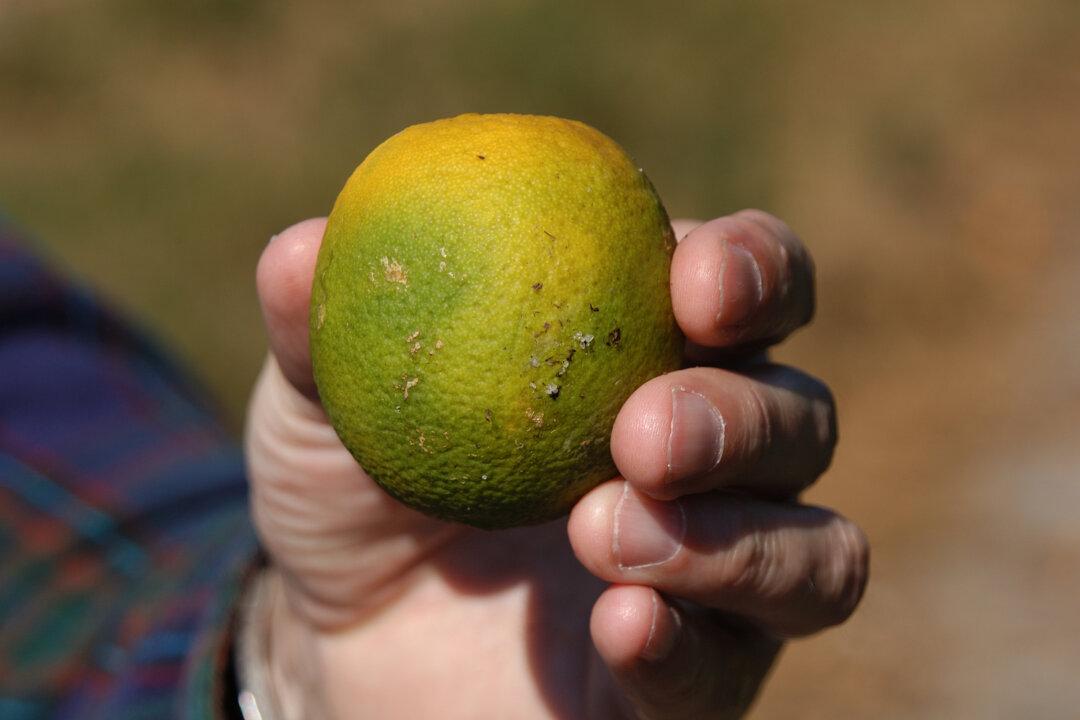A deadly bacterial disease was discovered last month on a Costa Mesa citrus tree, requiring the California Department of Food and Agriculture to quarantine the area around its location and collect samples, in hopes of stopping its spread.
The bacterial disease known as Huanglongbing is carried and transmitted through Asian citrus psyllid insects—which are small, brownish, and winged—feeding off a citrus tree’s leaves.





